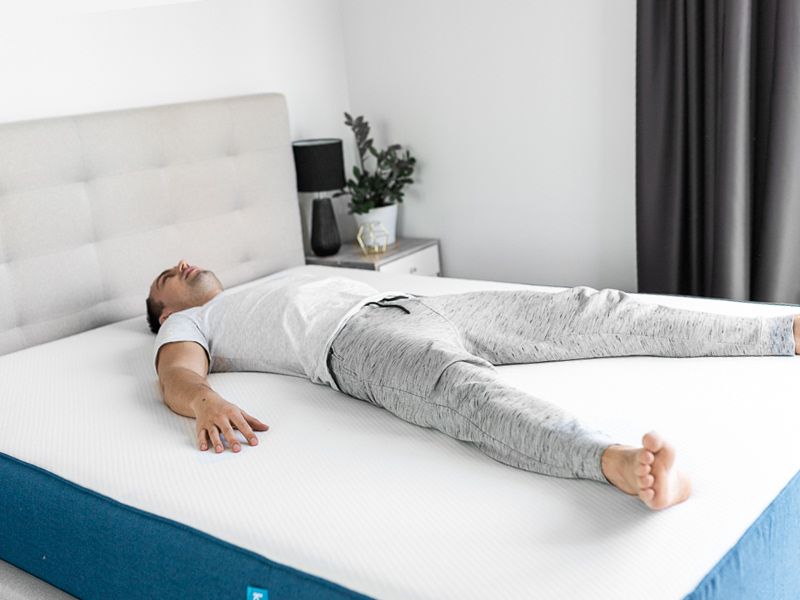Sports and sleep are more interconnected than we thought.
Perhaps everyone knows that a good night’s sleep requires exhaustion and fatigue during the day. Then you do not have to toss and turn in bed, think about everything and get up in the morning in a broken state. But often other factors also affect sleep: the psychological state and health in general.
It also happens that after a hard day’s work, stressful situations, and dozens of meetings it is still not possible to fall asleep. The problem may also be the following: nowadays the boundaries between day and night have become blurred. We are used to working practically 24/7, responding to business correspondence outside of work hours, finishing projects at night or until the early hours of the morning, on weekends, and over dinner with friends.
How many hours before bedtime should I exercise?
If you have insomnia and cannot fall asleep for several hours, a sharp exercise in the middle of the night will certainly exhaust you, but it is unlikely to help you fall asleep in the same second.
We tell you what kind of exercise you should choose to get a good night’s sleep.
Research
In 2013, the study, “Exercise to Improve Sleep for Insomnia,” came out to assess the relationship between exercise and sleep in people with insomnia.
Specifically, the authors observed 11 women with insomnia who did aerobic exercise for 30 minutes three times a week. They wore special bracelets to be monitored by the researchers.
The amount and quality of sleep also influenced the ability to exercise the next day, the intensity and duration of exercise, and as a consequence, the cumulative effect leads to improved sleep in general.
Sports for good sleep:
Aerobic or cardio exercise
Running, brisk walking, cycling or swimming help increase heart rate and as a consequence improve sleep and fight insomnia. A 10-minute moderate-intensity exercise session can be enough to exhaust you to get a good night’s sleep.
Power Training
The process of building muscle mass is, in principle, quite time-consuming and energy-consuming. But fortunately, it not only helps you fall asleep faster but also helps you sleep through the night without worry. Squats, lunges with and without dumbbells, push-ups, chest press, deadlift, and sumo squats are just a small part of the exercises that can be performed.
Yoga
Relaxing yoga poses, stretching, and accompanying breathing exercises are just the thing for people suffering from severe stress and insomnia. But the cumulative effect and the habit of doing yoga for at least a few weeks is important.
General recommendations for a good night’s sleep:
- Do not drink a lot of fluids, the exception is taking medication.
- Do not disrupt the sleep schedule on weekends. It is wrong to think that you can sleep through the weekend and be more awake during the workweek.
- Set aside the phone and appliances for a few hours before going to sleep. Blue light reduces melatonin production, so it becomes harder to fall asleep.
- If you have frequent problems falling asleep at night, avoid daytime naps.
- Don’t go to bed if you know you won’t fall asleep. Better do something monotonous and relaxing, like reading.
How important is sleep for athletes?
“Sleep is one of the main factors for optimal recovery of mental, mental,l and physical health,” says Elena. – “If you can live without food for 40 days and without water for a week, then without sleep a person already in a few days risks serious disorders in the body.
We all experience a decrease in attention, mood, and performance when we lose even 2-3 hours of sleep. Regular insomnia and lack of sleep deplete the nervous system and reduce performance and the body’s defenses. How then do athletes or people who regularly experience physical activity feel if lack of sleep affects an ordinary, untrained person so much? Let’s try to find out.
The role of mattresses for comfortable sleep should not be forgotten. When choosing a bed for athletes several requirements must be taken into account: quality, material, and size. There are no single standard requirements for the right choice, each case is different. Studies of quality sleep have shown that a properly chosen mattress improves the quality of sleep. The right choice of mattress for inflamed bursa will help to reduce the pain syndrome after sports activities.
During sleep, the activity of physiological functions is reduced, and the body’s forces are aimed at restoring the energy expended during the waking period. But even though the human body is resting, the cells of the body are active, the energy-rich phosphorus compounds are broken down, and the proteins and amino acids that make up the structural unit of the muscular system are broken down. That is why the normal duration of daily sleep for athletes should not even be 8-9 hours, but 10-12 hours on average! Otherwise, processes of muscle mass destruction are gradually activated in the body, and the resulting energy is detrimental, slowly but surely dropping the level of testosterone hormone in the blood, and reducing libido. And, of course, it is quite obvious that without such a major restorer as sleep, it is useless to count on good sports results.
So, summing up the above, we can confidently state that to function normally and be charged with energy, the body needs a good night’s sleep. To do this you should choose a sleep regime, go to bed and wake up every day at the same time, and in no case oppose to sleep when you feel tired. Listen to yourself, follow the right daily routine, take warm relaxing baths before going to bed, ventilate the room, and then you will always be in a great mood and have great results in sports. Good luck with your work on yourself.

